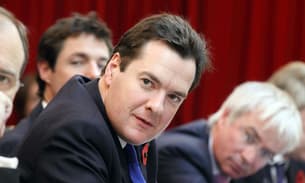
MEPs vote in favour of limits on high frequency trading
The finishing flag? MEPs’ proposals could severely limit HFT. (Photo by Shutterstock)
MEPs this week unanimously voted through rules that will severely limit the controversial share-trading practice of high frequency trading, as part of a financial sector reform bill.
High frequency trading (HFT) uses sophisticated algorithms to place thousands of tiny trades a second. Its advocates say it boosts the amount of trading on the markets and smooths out price differences, making price discovery on the markets more reliable. But there are serious concerns over how safe it is.
Related story – Britain opposes MEPs seeking ban on high frequency traders
Members of the economic and monetary affairs committee voted through proposals under the revised Markets in Financial Derivatives legislation – known as Mifid 2.
This would force orders to remain on order books for at least half a second – this may sound brief, but it is an aeon in HFT time. There are also measures that aim to make trading platforms more resilient to sudden surges in the numbers of orders, including ‘circuit breakers’ that kick in when stocks move too sharply.
Related story – Robot wars: How high frequency trading changed global markets
Mifid 2 also includes measures designed to limit speculation on commodity markets, which has been blamed for distorting food prices and harming the world’s poorest populations. And there are rules aimed at protecting investors from being sold inappropriate products.
Last week the Bureau reported that MEPs were planning tough new curbs on HFT, despite stiff opposition from the City of London and thewider financial sector. Stock exchanges, which receive a significant portion of their income from trading fees and high-tech services for HFT, were said to be ‘vocal’ about their desire to avoid regulation.
UK-based stock exchanges have argued that they already have circuit breakers so there is no need to officially mandate them.
Related story – Inside the European negotiations that could rein in HFT
Leftwing MEPs told the Bureau they wanted to see HFT ‘completely prohibited’, while committee chairwoman Sharon Bowles, a Liberal Democrat MEP, said: ‘The jury’s still out on whether high-frequency trading does anybody any good, and as more quite significant fund managers and others say they don’t want it, it may be that it disappears.’
But it would be premature to announce HFT’s demise in Europe: the bill still has a way to go before it becomes law.
The three-tiered structure of European lawmaking means that the legislation was previously passed by the European Commission and draft legislation will now go before the European Union’s finance ministers. The three versions will then be reconciled through a ‘trialogue’ process.




